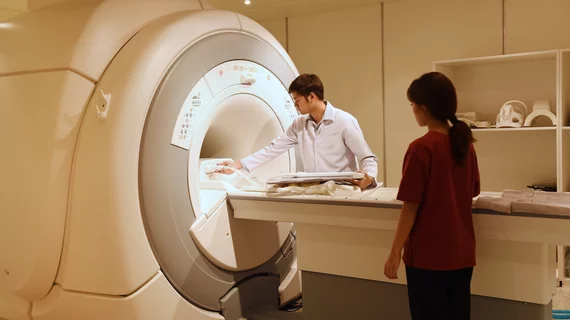A ‘magical’ experience: Patients given psychedelics don’t mind MRI noise, constraints
A new clinical trial has got patients describing MRI exams as magical and joyous experiences, and it wasn’t due to the many recent innovations of manufacturers to make the scans more patient-friendly.
The euphoric experience would instead be attributed to psychedelics—psilocybin, to be exact. Psilocybin is the psychoactive ingredient in “magic mushrooms,” and it is playing a starring role in a new clinical trial at the Turner Institute for Brain and Mental Health at Monash University in Australia.
The trial, called PsiConnect, is one of the largest in the world to use brain imaging to test the impact of psychedelics on neural activity. The hope is that the imaging results, combined with data from additional evaluations, will provide information that can be used to develop drugs and other therapies to treat various mental illnesses more effectively.
For the trial, 60 healthy volunteers will undergo an MRI of their brain before and after taking 19 milligrams of synthesized psilocybin (just a fraction of what is considered a therapeutic dose). Researchers will use the scans to assess for any signs of changes in electrical activity of the participants’ brains following psilocybin administration.
Historically, MRI exams have been somewhat difficult to acquire for some patients due to their restrictive and noisy nature. Many patients experience anxiety when undergoing MRI scans, and some require medication and even sedation in order to complete them. However, that was not the case with trial participant Michael Taylor, who described the loud and clanking sounds of his MRI scans as “the most magical music” that he had ever heard after he was given the small dose of psilocybin.
Taylor has no history of mental illness or recreational drug use, yet he found himself having quite the psychedelic experience during his MRI scan after taking psilocybin, at one point even feeling like he was “melding with the MRI machine.”
Adeel Razi, a neuroscientist from the Monash Turner Institute for Brain and Mental Health and leader of the trial, suggested that this type of study will help researchers better understand how psychedelic therapy could work by allowing them to visualize changes in the brain following exposures to psychedelics.
“I can look at how the brain is reacting to these compounds and that gives me a window into understanding consciousness,” Razi told the Sydney Morning Herald. “We need to have the evidence base of how it actually works in a brain without depression, and then the insights that we get, we can translate into use in a clinical setting.”
Razi shared that the imaging and behavioral data obtained during the trial will be made available publicly in around six months.

